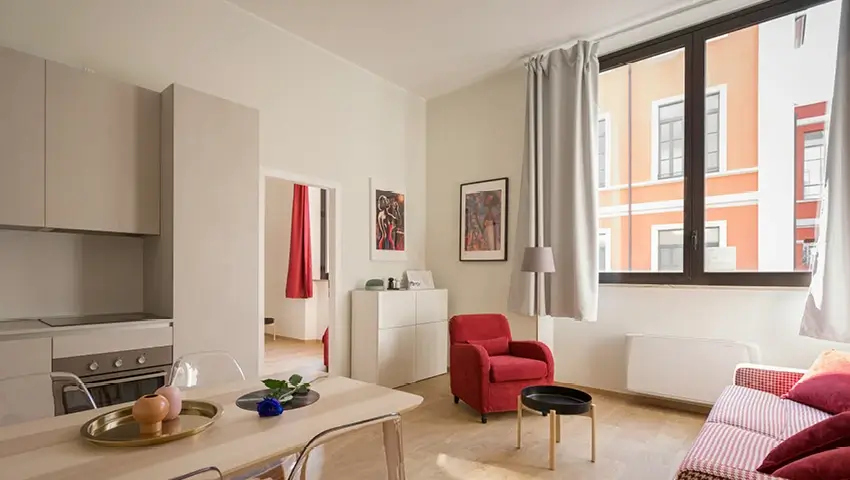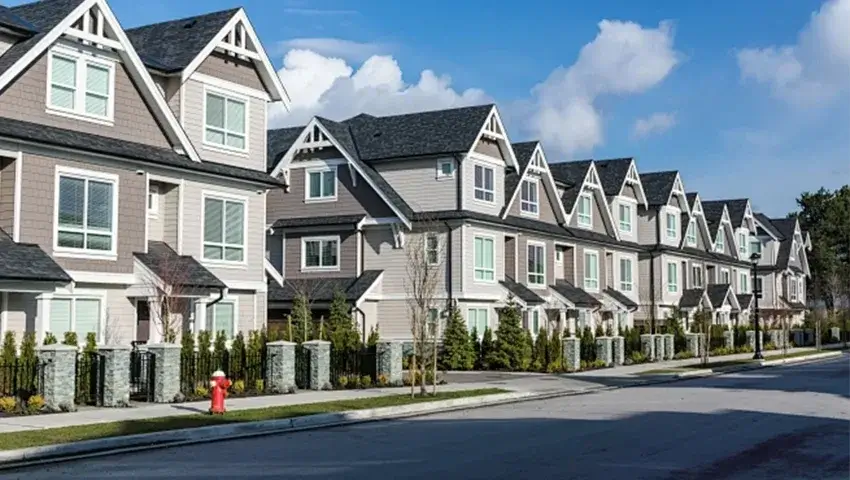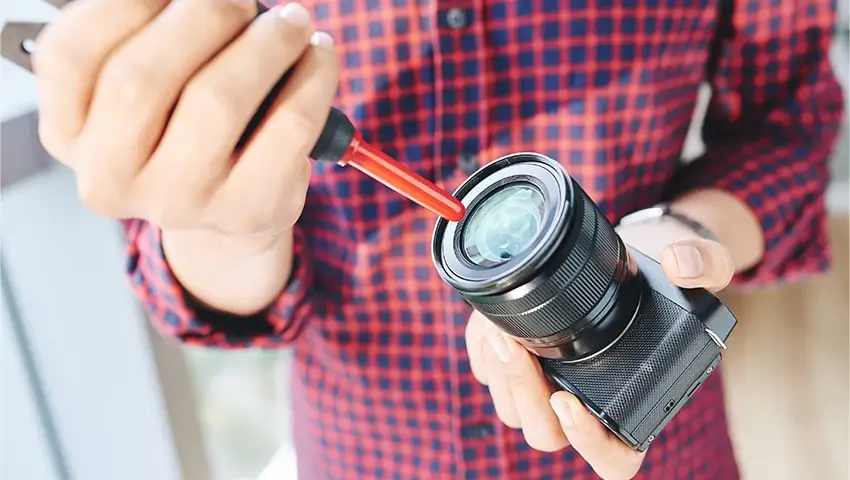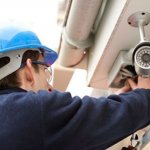Security is a top priority for everyone, including renters. As thefts, break-ins, and general safety concerns continue to rise, tenants are increasingly looking for ways to secure their apartments. Installing security cameras has become a popular solution. But, can tenants install security cameras inside or outside their apartments? What are the legal considerations? In this blog, we’ll dive into these questions and offer practical advice for renters.
Contents
Why Tenants Need Security Cameras After Renting Apartments
Renting an apartment comes with its own set of challenges. While many apartments offer basic security measures, such as locks and perhaps security gates, it often doesn’t feel enough to give tenants peace of mind. Security cameras offer several advantages for renters:
1. Protecting Personal Belongings
Whether it’s electronics, jewelry, or sentimental items, tenants have valuable possessions they want to keep safe. Security cameras allow tenants to monitor their property for theft, break-ins, or vandalism, especially if they live in urban or high-crime areas.
2. Ensuring Personal Safety
Security cameras aren’t just about protecting belongings. In some cases, they can offer an added layer of personal safety. Cameras monitoring the entryway or hallway can help tenants feel safer, especially if they live alone or at ground-floor apartments.
3. Documenting Incidents
If there’s ever a dispute with a neighbor or the landlord, security cameras can provide valuable evidence. Whether it’s to settle a property damage dispute or to clarify what happened during a specific event, having footage can be incredibly helpful.
4. Keeping Track of Deliveries
With the rise of online shopping, many tenants have packages delivered to their doorsteps. Security cameras offer a way to monitor deliveries, ensuring items aren’t stolen or misplaced.
Is It Legal for a Tenant to Install a Security Camera? (General Law Rules)
Before diving into the installation of cameras, it’s crucial to understand the legal implications. The legality of installing security cameras depends on various factors, including location, state laws, and the tenant’s lease agreement.
1. State and Local Laws
Laws vary by state and city, and it’s essential to be familiar with the regulations in your specific area. In general, tenants have the right to secure their private space, but local laws may restrict certain surveillance activities. For example, some areas have strict regulations regarding video and audio recording, which could limit where and how cameras are used.
2. Tenant’s Lease Agreement
Most leases will outline what modifications a tenant is allowed to make to the property. While some lease agreements might include clauses about installing cameras, others might prohibit tenants from altering or attaching anything to the property. It’s essential to read the lease carefully before installing anything. Violating lease terms can result in penalties or even eviction.
3. Landlord-Tenant Agreement
It’s common for a landlord to require approval before tenants make modifications to rental properties, especially if they involve drilling holes or mounting devices. Always check with your landlord before installing security cameras to ensure you’re within your rights.
Can a Tenant Install Security Cameras Inside the Apartment?
Many tenants wonder if it’s legal to install security cameras inside their apartments. The short answer is generally yes—if the cameras are placed in private areas where other tenants or the landlord won’t be recorded. Here are some things to keep in mind:
1. Privacy Concerns
While tenants can typically install cameras in their own private spaces, they must ensure that the cameras do not infringe on others’ privacy. For example, placing a camera in a shared hallway or targeting common areas can lead to legal issues, especially if other tenants are recorded without consent.
2. Best Locations for Indoor Cameras
Indoor cameras can be strategically placed to enhance security without violating anyone’s privacy. Common areas such as living rooms, kitchens, or entryways are suitable options. It’s important to avoid placing cameras in places where roommates or guests expect privacy, such as bathrooms or bedrooms.
3. No Hidden Cameras
Hidden surveillance cameras could violate privacy laws, especially if they record people in private moments. Always ensure that cameras are visible and not concealed in any way that would raise privacy concerns.
Can a Tenant Install Security Cameras Outside the Apartment?
When it comes to installing security cameras outside the apartment, tenants face more restrictions. While interior cameras generally do not pose significant issues, outdoor cameras require careful consideration of both legal and practical factors.
For a comprehensive understanding of the legal landscape surrounding outdoor surveillance cameras, especially for residential use, refer to Laws on Outdoor Surveillance Cameras for Home.
1. Permission from the Landlord
Outdoor cameras often need to be installed on walls or in areas that belong to the property owner. Tenants will usually need to get explicit permission from their landlord before mounting cameras on the exterior of the building or in shared spaces. If the camera is to be mounted outside the apartment but within the apartment complex, a landlord’s approval is a must.
2. Targeting Private Property
Another issue with outdoor cameras is making sure they don’t infringe on the privacy of other tenants. For instance, cameras should not face the windows of other apartments or capture private areas like balconies. The camera’s focus should be limited to your personal space, like your doorstep or parking spot.
3. Weather-Resistant Cameras
If the landlord allows outdoor cameras, it’s important to choose ones that are designed for outdoor use. Weather-resistant or waterproof models are a must to ensure the camera survives the elements.
Can a Landlord Have Cameras Outside the House?
The answer is yes—landlords can install cameras outside the house or building, but they must respect tenants’ privacy rights. Here are a few considerations:
1. Permission for Surveillance
If the landlord installs cameras outside the apartment complex, they should notify tenants in advance. Tenants should also be informed of what areas are being monitored and why.
2. Privacy Boundaries Landlords
must be careful not to install cameras in places where tenants have a reasonable expectation of privacy. Surveillance should focus on exterior areas, like parking lots, walkways, and building entrances, and should not extend into tenants’ personal spaces.
Where Is It Legal to Install Apartment Surveillance Cameras?
While general guidelines apply, tenants must always adhere to local and state laws when installing surveillance cameras. Legally, surveillance cameras can be installed in the following areas:
1. Inside Private Spaces:
Tenants can install cameras inside their apartments, as long as they avoid common areas and respect privacy.
2. Exterior Spaces (with Permission):
Outdoor cameras can be installed with prior approval from the landlord, ensuring that they only monitor the tenant’s space.
3. Shared Spaces (with Permission):
If a tenant wishes to install a camera in a shared or common area (such as a shared hallway), it’s essential to get approval from the landlord and possibly from other tenants.
Will the Security Camera Infringe on Other Tenants’ Privacy?
One of the most important considerations for renters installing security cameras is ensuring that they do not infringe on the privacy of others. This includes:
1. Avoiding Common Areas:
Cameras should not be installed in areas that multiple tenants use, such as hallways, stairwells, or laundry rooms.
2. Not Recording Other Tenants:
Cameras should not capture the activities of other tenants in their private spaces. Position cameras in a way that they only monitor your entryway or personal area.
Suitable for Renter-Friendly Security Cameras Types
For tenants who don’t want to make permanent alterations to the property, renter-friendly cameras are a great option. These cameras are easy to install and remove without damaging the property. Some options include:
1. Wireless Cameras:
Wi-Fi cameras are simple to install and can be easily moved around. They don’t require drilling holes and often come with adhesive mounts that won’t damage the walls.
2. Battery-Powered Cameras:
These cameras don’t require a power outlet and can be placed anywhere inside or outside the apartment.
3. Stick-On or Suction-Cup Cameras:
These options are perfect for renters who want to install cameras temporarily. They can be attached to walls or windows and removed without leaving marks or holes.
FAQs
1. Can a tenant install a camera in their apartment without landlord permission?
In most cases, yes, but tenants should always check their lease agreement first. Cameras should be placed in private areas and not infringe on other tenants’ privacy.
2. Can landlords monitor tenants with security cameras?
Landlords can install cameras outside the building but cannot monitor tenants inside their apartments. They must notify tenants if cameras are in place.
3. How can tenants ensure their security cameras are legal and ethical?
Always check local laws, get landlord approval if needed, and avoid infringing on the privacy of other tenants.
Conclusion:
Security cameras are a valuable tool for renters, providing peace of mind and protection for personal belongings. However, it’s crucial to understand the legal and privacy considerations involved before installing cameras. By following local laws, respecting the lease agreement, and being mindful of others’ privacy, tenants can safely and effectively use security cameras to protect themselves and their property.



